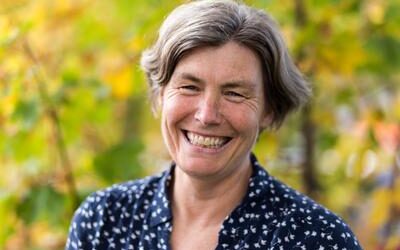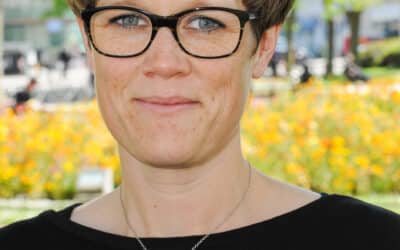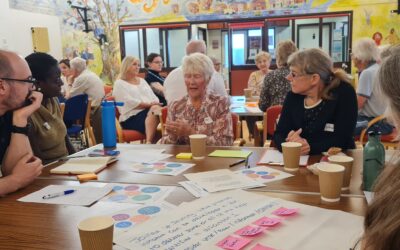The Health Builder difference: Redefining patient involvement
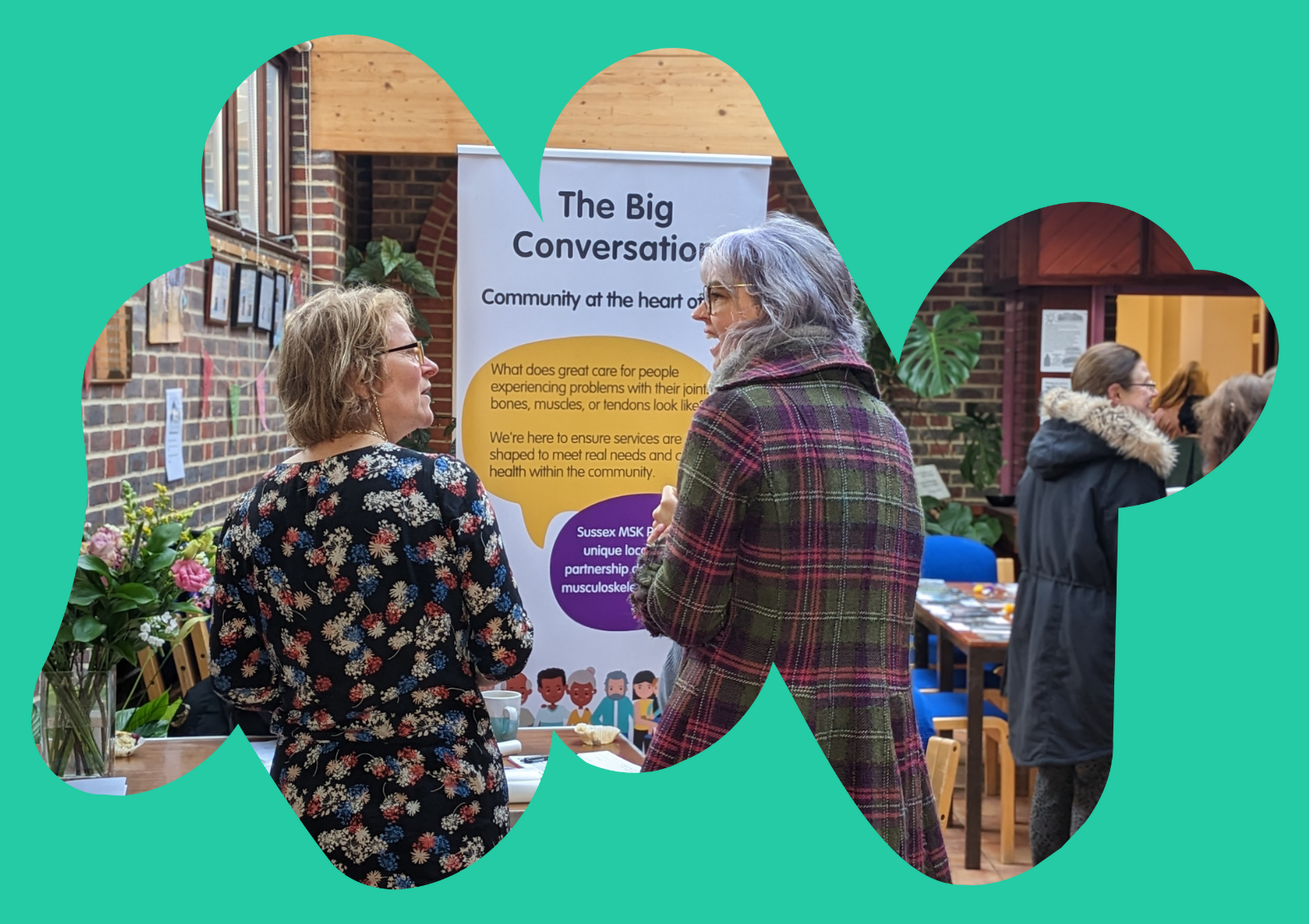
At Here, we believe that designing exceptional care means working in true partnership with the people who use our services. In this blog, Health Builder Norman Webster shares how our unique approach puts lived experience at the heart of service design and delivery.
Designing and delivering exceptional care surely has to include those for whom the care is being designed and delivered? “Do with” rather than “Do to” has to be the way forward to improve outcomes and shift responsibility from clinicians to a shared responsibility with patients.
Patients and carers are involved as Health Builders in this design and delivery journey at Here.
What is a Health Builder?
What is a Health Builder, I hear you ask.
We are a small team of people with various long-term health conditions who work across services at Here, including Sussex MSK Health: Brighton & Hove and West Sussex. We are involved in patient empowerment initiatives like Shared Decision Making and Personalised Care. Our work spans advising on policy documents and public-facing communications, observing clinics to provide feedback for clinicians’ Continuing Professional Development, and helping improve pathways in areas such as stroke aftercare. One of our team members has even provided the voice-over for our informative patient videos.

The Health Builder team is unique in that we are paid according to NHS guidelines for honoraria and we are involved in areas of work as true partners in creating exceptional care.

Holding space in service design
We are confident in holding our space at the table when important, exceptional care service design conversations happen. We know one another and can speak up for each other in these spaces. We hold regular “Big Conversations” in community settings to gather the views and feelings of our communities. We explore current themes in health care delivery in local communities. We explore how people currently access our services and what could make the experience smoother and more accessible for everyone. We do this so that we can represent them in the policy and governance decisions as they are made.

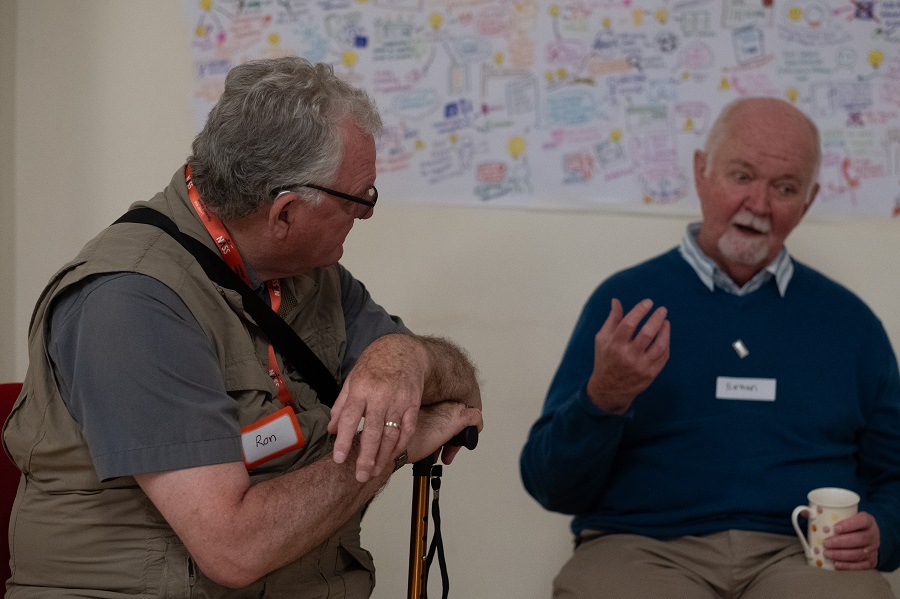
Building accountability into new governance structures
There is a formal route of reporting our work through the Clinical Quality Oversight Group. This is a new group set up following the creation of the Sussex MSK Health: Brighton & Hove and West Sussex in December 2024. It is vital that, during this period of change within our service, we put patient experience at the heart of building this new MSK service with colleagues from across Brighton & Hove and West Sussex.
More than a tick-box: meaningful involvement
The Health Builder team is unique in that we are paid according to NHS guidelines for honoraria and we are involved in areas of work as true partners in creating exceptional care. We are also unafraid to point out inadequacies in service creation and delivery. We are not simply a group of people with lived experience, wheeled out when “consultation” is required, as part of a tick box exercise.

Our priority is providing community health and networking events to build long-term and meaningful relationships where those communities feel safe in expressing their health interactions with NHS services.

Valuing local and cultural connections
We value community connections and are active members of groups such as Crawley Community Action, Community People, West Area Health Forum and Voluntary Action Adur and Chichester.
The delivery of services to marginalised groups is important to us. We have facilitated health events with the Gurjar Hindu Indian community, Crawley Islamic Centre and Masjid, West Hove Health Forum and others. Apart from providing on-site health care, we are keen to hear the views of local communities. We provide feedback information via the Clinical Quality Oversight Group.
Listening, acting and learning through feedback
Our priority is providing community health and networking events to build long-term and meaningful relationships where those communities feel safe in expressing their health interactions with NHS services. Sometimes these conversations can be difficult, but we value and act upon all feedback through our community engagement efforts.
One example of this in action is our work to improve stroke pathways. Health Builders collaborated with clinicians and service leads to gather and reflect the real experiences of people who had accessed stroke aftercare services. Through community conversations and targeted engagement, we identified areas where patients and carers felt unsupported, particularly in transitions between acute care and community rehabilitation. Our insights helped to shape clearer signposting, better continuity of care, and more personalised support for stroke survivors and their families.
Our ultimate aim is to seek out marginalised groups and ensure members of those groups begin to feel that care is accessible and safe for them.
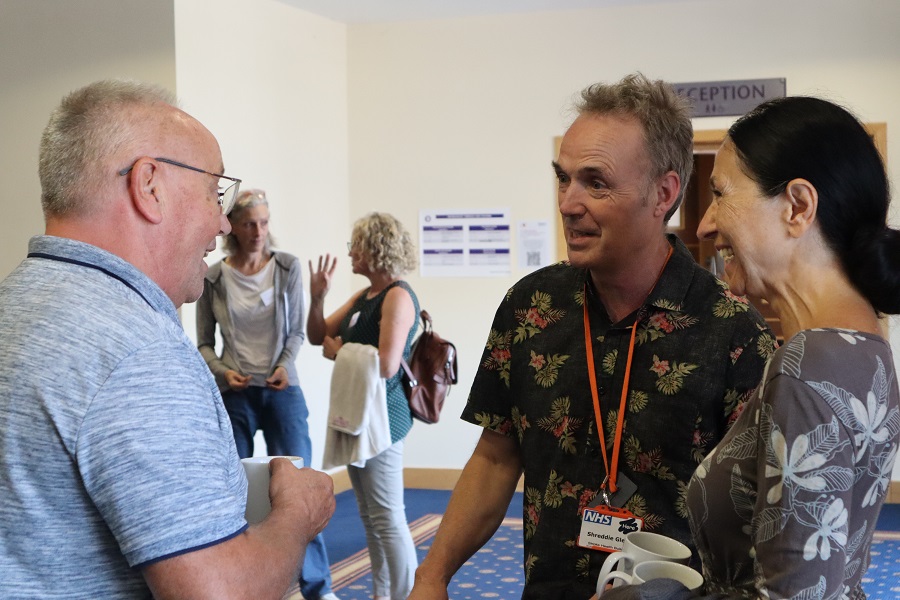
Why Health Builders matter more than ever
The NHS has been under immense financial pressure for years. Rising staffing, medicines, energy and fuel costs, a growing maintenance and estates backlog and the post-pandemic situation have tightened the NHS’s purse strings. The people in charge are forced to make tough decisions to balance the books. It is ever more important that patients derive maximum benefit from each interaction with the NHS and that they are treated in the most cost-effective ways possible.
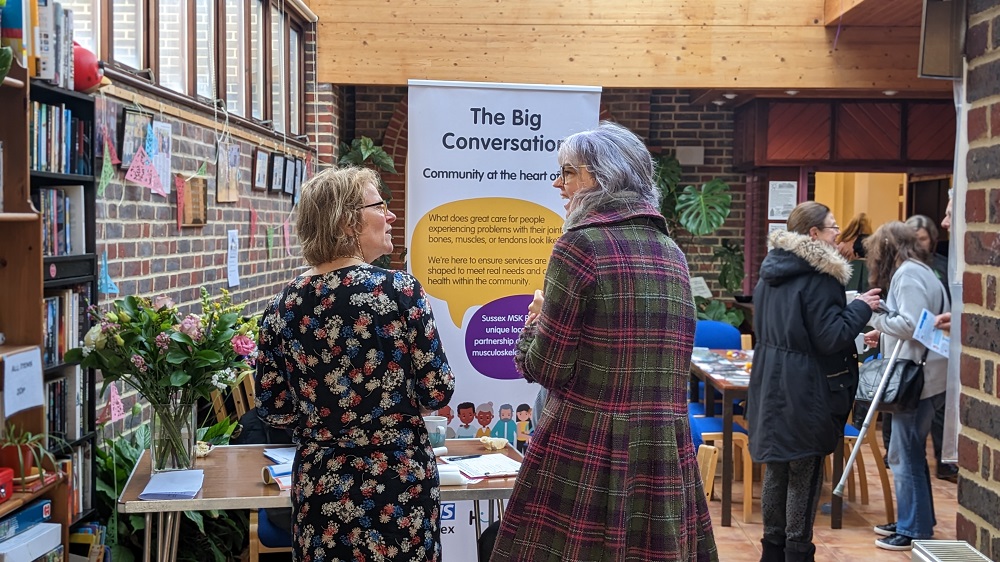
Making every contact count
Health Builders provide wrap-around care to people who access our service by welcoming them at CAD and Hub events, supporting them at Peer Support Groups and ensuring that all services and communications are delivered in the most appropriate ways.
By knowing our communities and understanding their needs through our “Big Conversations” and other activities, we can identify marginalised groups. We make every effort to engage with them to understand their specific needs. We try to make care feel accessible and safe for them.
The bottom line is that we need to make every contact count in the current health economy.
By Norman Webster – Health Builder.
Also of interest
Early Pain Support: Insights From our first Community Drop-In
As part of Rethinking Our Health, we hosted our first community pain drop-in — a chance for people to talk things through early, get reassurance, and feel more confident about managing pain. This blog shares what we learned, and why having the right conversation at the right time really matters.
Rethinking Our Health: starting with pain
We’ve been asking communities what really matters when they’re living with pain. In this update, we share what we heard, what surprised us, and how this learning is shaping a new three-part support offer for MSK pain that starts locally, builds on existing strengths, and is designed together.
Rethinking Pain: Insights from The Kings Fund and Here
What if pain wasn’t just something to manage, but a signal for change? The Kings Fund and Here explore how a “do with” approach can transform pain services – focusing on prevention, connection, and holistic support.
